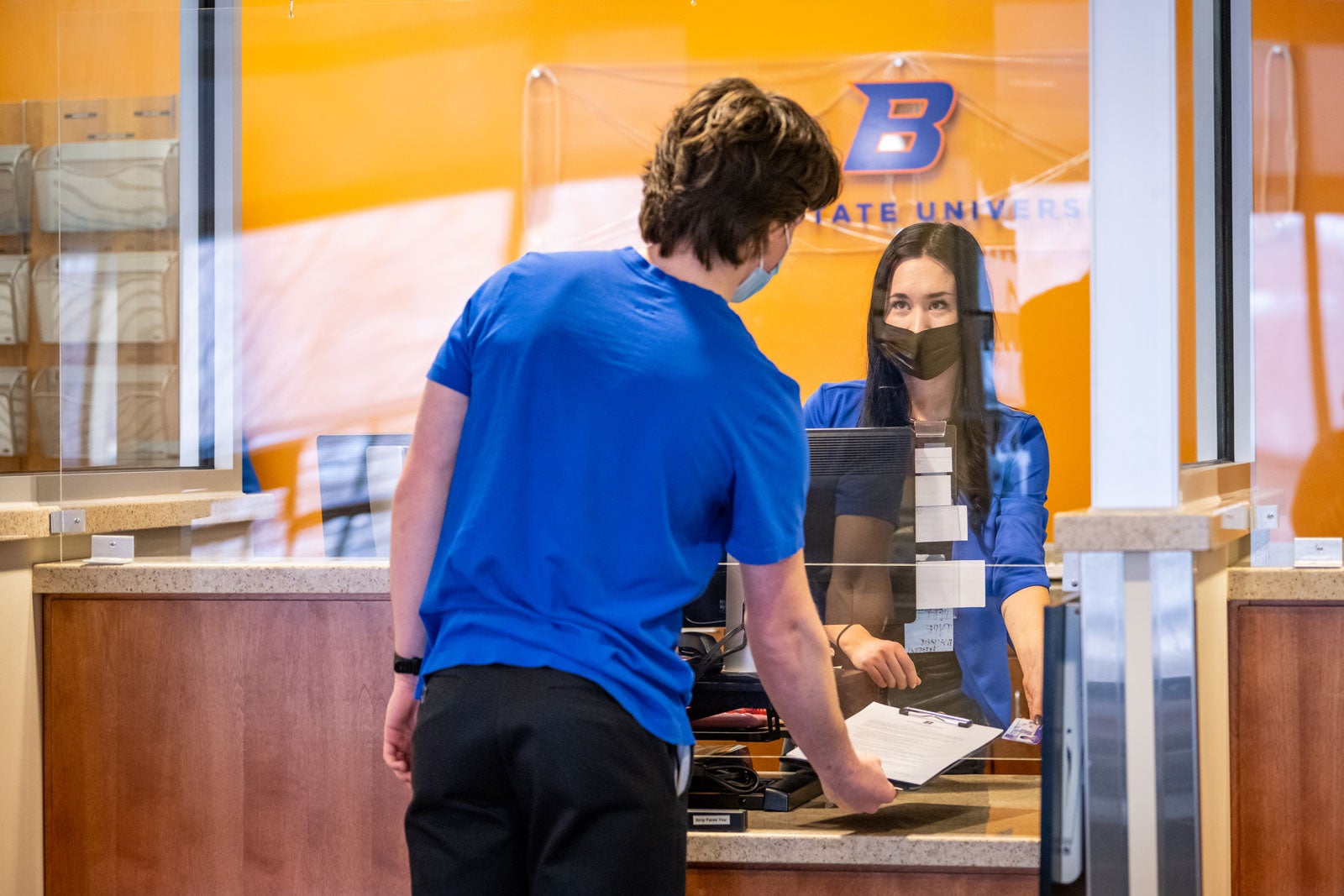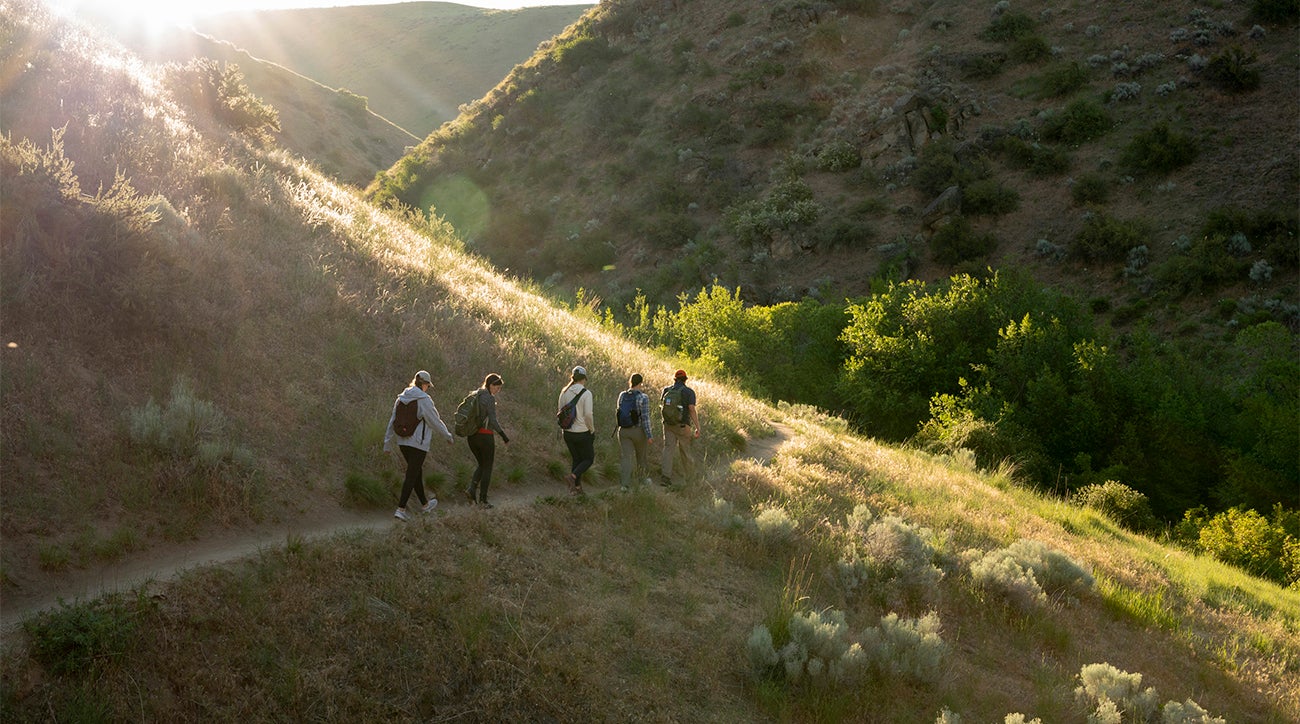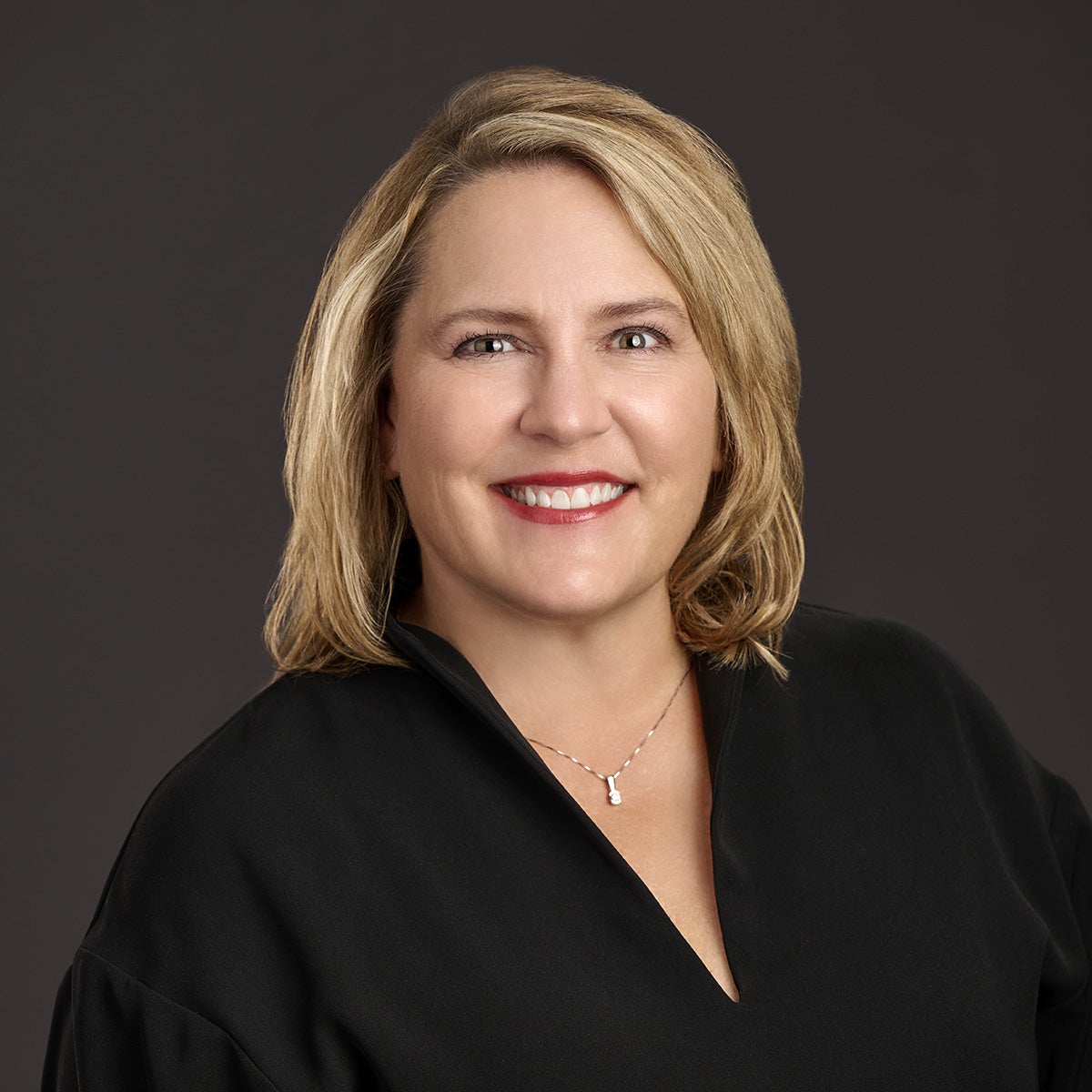
Julia Beard, executive director of University Health Services, is at the center of much of Boise State’s response for improving health on campus. Counseling, medical services, wellness services and administrative services for all of the clinic and other administrative needs report up through her.
One way or another, mental health flavors how her team spends its days. Medical providers are spending at least 50% of their time on mental health, she estimates, everything from medication management to counseling and the effects of stress, depression and anxiety, the front-running diagnoses.
“Mental health services are more on the radar than they have ever been, and every single person in the clinic is helping with the mental health needs of the campus,” she said. “Everybody has their part in the management of mental health, and the pandemic has absolutely put it all on steroids.
“There are about a million reasons college students are more depressed, more anxious, more stressed.”
BroncoFit Wellness to Prevent Mental Health Crisis
As the director of wellness services, Holly Levin oversees BroncoFit, the proactive, campuswide, peer-led prevention and wellness initiative designed to move Boise State toward becoming “America’s Healthiest Learning Environment.”
BroncoFit has been in existence for many years, since well before the pandemic, and is now comprised of a half-dozen professionals, graduate students and 10 undergraduates who serve as peer health educators, who fan out across campus orchestrating programs and events.

Trained by members of the professional staff, the peer educators, many but not all of whom are in public health and other College of Health Sciences programs, are assigned residence halls and serve those students through programs tailored to the needs of the particular setting.
And while they can address the “eight dimensions of wellness” (emotional/mental, environmental, financial, intellectual, occupational, physical, social and spiritual), “the trend has been mental health, and I don’t think that’s a surprise,” Levin said.
Body image, body acceptance, food insecurity, a sense of belonging and community, the challenge of making friends … these and many other facets of mental well-being are increasingly part of the terrain for the BroncoFit group.
Her team has used Boise State’s geographic location in service of its programs. She points to Be Well Outside and Be Well Boise, BroncoFit and City of Boise programs that link students and residents with active and healthy programs and pursuits.

“Where we’re situated from an outdoorsy standpoint is amazing,” she said, going on to describe student meet-ups for hikes and walks. “I think that that is a strength, and not all other schools have that.”
Working upstream on wellness is a critical component of the safety net that Boise State is building, in keeping with its mission, Levin believes.
“You need a lot of support,” she said. “Life happens, and I never want wellness to be the reason they are not reaching that success.”
Among the many concerns Beard and her team have for students, suicide stands out.
“Everybody is concerned about suicidality and the increase in that, and in girls, the numbers have really jumped up,” she said. “It’s concerning to everyone. Nobody wants to see that. It’s the ultimate mental health problem.
“We can treat many of these other problems, but that is really overwhelming.”
Student mental health affects future employees and employers
Beard, who holds a nursing degree and is a Boise State bachelor’s and master’s graduate, wonders if the mental and emotional challenges facing students are well-understood off campus. She imagines some of the students her team sees, in the future, as nurses, clinical professionals and other types of employees.
“I really think that the private sector and the working world are not prepared for the level of need,” she said. “They need to understand that we need the private sector and donors to step up and say, ‘How can we help you solve this problem?’
“They have a role, employing these folks in the future, to ensure that they are adequately trained to be an employee, ready for the workforce. It can’t fall entirely on the university to solve all these problems. They really need to be thinking about, ‘What is their part in helping with that?’”
Inspired? Let’s Chat!

Heather A. Jauregui, MSEd
Senior Director of Development
Call: (208) 426-4138
Email: heatherjauregui@boisestate.edu
Connect with Heather on LinkedIn
More about Mental Health at Boise State University
-
Tuesday Nov 22nd, 2022
Broncos power new mental health positions through their own student fees
Counselor Ayako Otani (left) listens to a student during a counseling session. Five new positions… -
Monday Nov 7th, 2022
Spotlight on a crisis: The mental health of young Idahoans
Megan Smith A multidisciplinary team from Boise State received a $500,000 grant from the Idaho… -
Wednesday Jun 8th, 2022
College of Business and Economics capstone project helps strengthen a vital resource for Idahoans in crisis
LAs part of an advertising campaign supported by local businesses and artists who donated their… -
Tuesday May 31st, 2022
Dean of Students receives a three-year, $304,000 grant to design, build and implement a comprehensive suicide prevention program
A change in how Boise State addresses mental health is in the air, and giving… -
Monday May 23rd, 2022
Multidisciplinary team receives funding to research mental health outcomes among Idaho youth
Smith, Isbell and Master of Public Health students gather to discuss their upcoming community meetings….